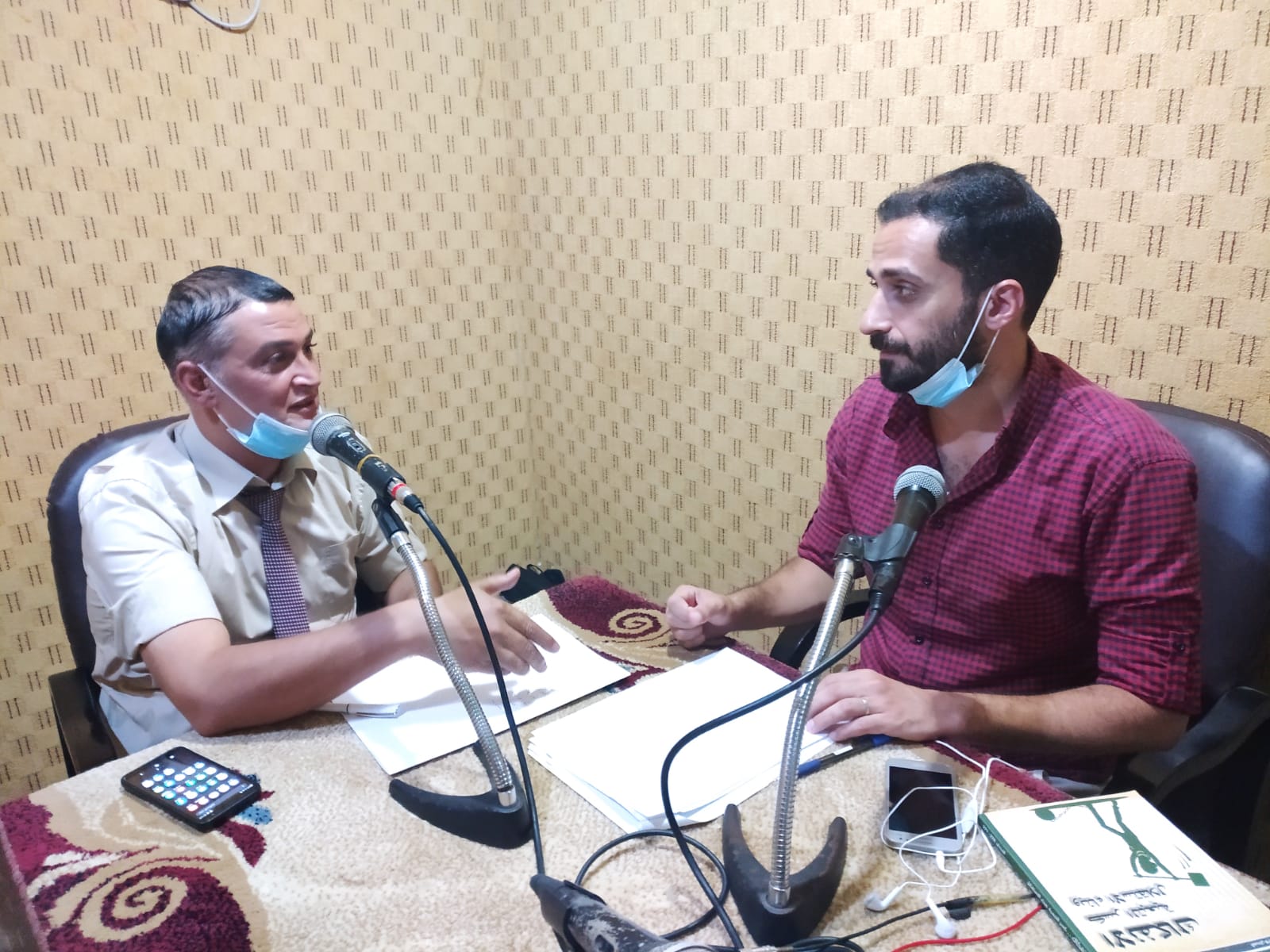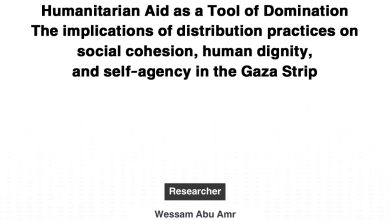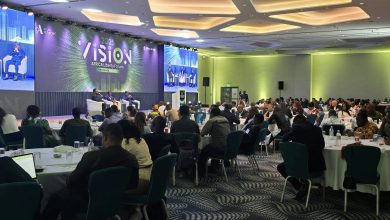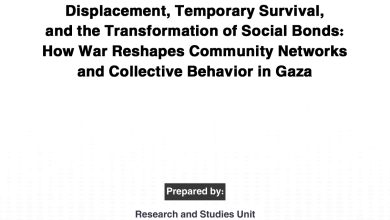The Consequences of the COVID-19 Pandemic on The Economic Sectors in Gaza

Gaza in the Eyes of COVID: Radio Program
The Consequences of the COVID-19 Pandemic on The Economic Sectors in Gaza
Pal-Think for Strategic Studies continues to implement the radio program within Gaza in the Eyes of COVID project funded by ATLAS Network. In the second episode, Dr. Raed Helles, economy researcher was hosted to discuss the consequences of COVID-19 on the economic sectors in Gaza.
At the very outset of the episode, Helles described the pandemic as the most severe shock to the Palestinian economy especially since it was suffering from several crises before the outbreak inside Palestine.
Then he explained that the economic repercussions of the crisis were represented in the manner of confrontation. Since Palestine, like other countries, has instituted preventive measures, the most prominent of which are the curfew and the closure of all crowded places, where social divergences policies such as enterprises, shops, and popular markets are difficult to apply, declaring the state of emergency since March 1st, thus preventing movement between governorates and stopping religious rituals and educational institutions.
After that, Dr. Helles confirmed that Palestine does not possess the economic structure and financial resources to cope with this closure for a long time. Due to this, the Palestinian government has suffered a huge economic loss estimated to three billion US dollars.
Going forward, Dr. Raed stated that the Palestinian Central Bureau of Statistics expected the Palestinian economy to shrink by 14%. On the other hand, the World Bank expected the Palestinian economy to shrink by about 7.6% in case of easing movement and economic activity, but if the scenario of the closure continues, it will shrink by 11%.
Also, he said that the crisis most affected the economic sector in the Gaza Strip as a result of the 14-year blockade in coincidence with the Palestinian internal division, which slowed down the economic indicators with poverty rates reaching 53% and unemployment rates hitting 52% as the highest in the world, while the unemployment rate hitting 70% amongst youth. He also added, there are 72% of the Gaza Strip citizens suffering from food insecurity, not to mention 80% of them are receiving relief aid from different relief agencies.
Dr. Helles stressed that all the above confirm the fragility of Gaza’s economy in the face of the Corona crisis. What makes it even harder is the world’s preoccupation facing COVID-19 and the damage of donor countries’ economies are negatively affecting the size of the aids received by the Gaza Strip and will negatively affect the economy’s pace.
Moreover, Dr. Raed pointed out that the closures led to the collapse of economic sectors, including, but not limited to, tourism, agriculture, which all caused inability of farmers to go to their lands, harvest their crops, and weakened marketing or export of crops. He stated that the industrial sector was colossally shrunk since it is based on the purchase power of individuals which was going down due to the lockdown.
He said that movement among areas was curbed owing to the restrictions imposed on employees, students, and citizens as to comply with the instructions of government to stay at home.
On that occasion, Dr. Helles observed that the chemical and pharmaceutical industry sector has been recovering as a result of the increase purchase for detergents, sterilizers, and soap. While for the food industries, some products have been highly demanded in the market whereas other product’s purchases have fallen down.
Dr. Helles concluded the episode by mentioning the governmental and international interventions to mitigate the effects on the damaged economic sectors. Then he recommended focusing on both compensating and offering aid for Palestinian workers and their families who were negatively affected by the closire, similar to the WaKfit Izz Fund. He also recommended encouraging businessmen and owners of companies and factories to provide financial aid because the citizen will return these funds to the market and will contribute to the restoration of the economic cycle.
He also emphasized that the governmental authorities are required to offer aids to the damaged sectors, especially the owners of the medium, small and micro enterprises because their steadfastness is simple and has a key role in moving the Palestinian economy. Then he further stressed that the government should facilitate the return of these businesses to the market in the form of eradicating taxes and licensing fees as compensation to the losses during the crisis.




